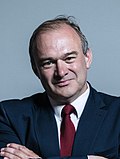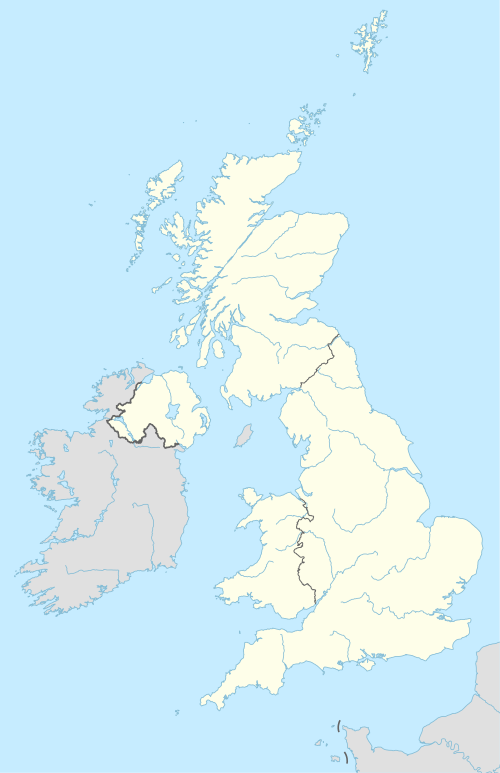Top Qs
Timeline
Chat
Perspective
2019 Liberal Democrats leadership election
British, internal, political party contest From Wikipedia, the free encyclopedia
Remove ads
The 2019 Liberal Democrats leadership election was held following the announcement of the resignation of Vince Cable as leader on 24 May 2019, after just under two years as leader of the Liberal Democrats in the United Kingdom. The two candidates to succeed Cable were Ed Davey and Jo Swinson.
The result was announced on 22 July 2019 with Swinson winning with over 62% of the vote.[1]
Remove ads
Background
Vince Cable had previously stated his intention to stand down before the next general election. Shortly before the party's 2019 Spring Conference, he announced that he would ask the party to hold the leadership election in May 2019, following the 2019 local elections.[2][3] The party was expected to run a 9-week campaign starting after the European Parliament elections.[4]
On 24 May, the day after the European elections (but before the results were counted on 26 May) and the same day that Prime Minister and leader of the Conservative Party Theresa May announced her upcoming resignation, the Liberal Democrat leadership election was formally started.[5]
Remove ads
Election rules
Summarize
Perspective
The running of the leadership election was determined by Article 17 of the Liberal Democrat constitution.[6] Liberal Democrat leadership elections use the alternative vote (instant runoff) system, with all party members being entitled to vote under a one member, one vote system. As of 8 June the party membership was 105,480.[7]
Nominations closed on 7 June and the new leader was scheduled to take over on 23 July. Nominees were required to be an MP, have the backing of at least 10% of the Parliamentary party (i.e. one other MP), and be supported by at least 200 members spread across at least 20 different local parties.[5]
Cable had put a proposal to the party's Spring Conference to change the rules to allow non-MPs to seek the leadership; however, this was rejected. Thus the pool of potential candidates were the 11 MPs in the party at the time of the close of nominations.[8] A proposal to allow registered supporters, as well as members, to vote in the leadership contest was also rejected.[9]
Party members registered before the close of nominations were able to vote via postal or electronic ballots; these were issued on 28 June and 1 July respectively. Voting closed on 22 July and the winner announced that evening.[10][11]
Remove ads
Campaign
Summarize
Perspective
In February 2019, eleven MPs from the Labour Party and Conservative Party resigned to form the centrist Independent Group, soon to be renamed as Change UK. Among potential leadership candidates, Jo Swinson was seen as most open to working with the Independent Group, while Ed Davey was least open.[12]
Layla Moran, having been elected to parliament in 2017, was seen as the candidate least related to the Cameron–Clegg coalition government.[12] Initially, most focus was on Swinson, Moran and Davey as likely contenders. However, in mid-May Moran announced that she would not be entering the contest.[13] Following the May 2019 European Parliament elections, in which the Liberal Democrats performed extremely well, coming second and beating both the Conservative and Labour parties, Swinson and Davey were expected to be the candidates, with Swinson favoured by bookmakers.[14][15] Swinson called on supporters of Change UK and the Greens to work with the Liberal Democrats, but stopped short of calling for a formal alliance between the parties.[15] Stephen Bush, writing for the New Statesman, argued that the expected campaign issues—the legacy of the coalition and the threat of Change UK—were both largely rendered moot by the success of the Liberal Democrats in the local and European elections.[16]
Davey launched his campaign on 30 May with a focus on revoking the UK's withdrawal from the European Union and on environmental issues by "de-carbonising capitalism". He hinted at more interest in encouraging defections to the Liberal Democrats than pacts with other parties, like Change UK. He also defended the record of the coalition.[17] Swinson announced her campaign later that day too. Later that week, she said the party could be open to local electoral agreements to support other pro-Remain politicians, but that the Liberal Democrats were the "obvious rallying point" for those opposed to Brexit.[18]
Liberal Democrat Chief Whip Alistair Carmichael announced that the MPs, while they may make individual endorsements like Christine Jardine, will stay largely neutral in the election and two MPs will nominate each candidate in order to show that MPs will work with whoever becomes leader. Christine Jardine and Tom Brake nominated Swinson, and Wera Hobhouse and Jamie Stone nominated Davey. Carmichael and Cable remained neutral in the campaign.[19]
Remove ads
Candidates
Summarize
Perspective
Roles in bold are currently held.
Declined
The following MPs were discussed in the media as potential leadership candidates, but they declined to stand:
- Tom Brake, MP for Carshalton and Wallington (1997–2019); Party Spokesperson for Exiting the European Union (2017–present) and for the Office of First Secretary of State (2017–present)[21] (endorsed Swinson)
- Alistair Carmichael, MP for Orkney and Shetland (2001–present); Party Spokesperson for Environment, Food and Rural Affairs (2019–present), Chief Whip in the House of Commons (2017–present) and Deputy Leader of the Scottish Liberal Democrats (2012–present)[22]
- Christine Jardine, MP for Edinburgh West (2017–present) and Party Spokesperson for Work and Pensions (2019–present)[23] (endorsed Swinson)
- Norman Lamb, MP for North Norfolk (2001–2019); Chair of the Science and Technology Select Committee (2017–present) and former Health Minister[21]
- Layla Moran, MP for Oxford West and Abingdon (2017–present) and Party Spokesperson for Education (2017–present)[24][25][13]
Remove ads
Endorsements
Ed Davey
Endorsements for Ed Davey
- Members of the European Parliament
- Caroline Voaden, MEP for South West England since 2019[26]
- Shaffaq Mohammed, MEP for Yorkshire and the Humber since 2019[27]
- Irina von Wiese, MEP for London since 2019
- Chris Davies, MEP for North West England (1995–2014; since 2019) and MP for Littleborough and Saddleworth (1995–1997)[26]
- Members of the Scottish Parliament
- Liam McArthur, MSP for Orkney since 2007[28]
- Former Members of Parliament
- Sarah Olney, MP for Richmond Park (2016–2017)[29]
- Matthew Green, MP for Ludlow (2001–2005)
- Liz Lynne, MP for Rochdale (1992–1997) and MEP for West Midlands (1999–2012)[30]
- Mark Williams, Leader of the Welsh Liberal Democrats (2016–2017) and MP for Ceredigion (2005–2017)[31]
- Peers
- Liz Barker, life peer since 1999[32]
- Floella Benjamin, life peer since 2010[33]
- David Chidgey, life peer since 2005 and MP for Eastleigh (1994–2005)[34]
- Navnit Dholakia, life peer since 1997 and President of the Liberal Democrats (2001–2004)[35]
- Don Foster, life peer since 2015 and MP for Bath (1992–2015)[36]
- Angie Harris, life peer since 1999 and Deputy Speaker of the House of Lords since 2010[37]
- Meral Hussein-Ece, life peer since 2010
- Judith Jolly, life peer since 2010 and Party Spokesperson for Health since 2017[38]
- Sarah Ludford, life peer since 1997 and MEP for London (1999–2014)[39]
- Jonny Oates, life peer since 2015[40]
- Chris Rennard, life peer since 1999 and Chief Executive of the Liberal Democrats (2003–2009)
- Roger Roberts, life peer since 2004[41]
- Paul Scriven, life peer since 2014[42]
- Mike Storey, life peer since 2011[43]
- Celia Thomas, life peer since 2006[41]
- William Wallace, life peer since 1995[44]
Jo Swinson
Endorsements for Jo Swinson
- Members of Parliament
- Tom Brake, MP for Carshalton and Wallington since 1997 and Party Spokesperson for Exiting the European Union and International Trade since 2017[45]
- Wera Hobhouse, MP for Bath since 2017 and Party Spokesperson for Energy and Climate Change since 2019[46]
- Christine Jardine, MP for Edinburgh West since 2017 and Party Spokesperson for Work and Pensions since 2019[23][47]
- Members of the European Parliament
- Jane Brophy, MEP for North West England since 2019
- Antony Hook, MEP for South East England since 2019[48]
- Martin Horwood, MEP for South West England since 2019 and MP for Cheltenham (2005–2015)[49]
- Barbara Gibson, MEP for East of England since 2019[50]
- Sheila Ritchie, MEP for Scotland since 2019
- Members of the Scottish Parliament
- Alex Cole-Hamilton, MSP for Edinburgh Western since 2016[51]
- Willie Rennie, Leader of the Scottish Liberal Democrats since 2011, MEP for Dunfermline and West Fife (2006–2010), Mid Scotland and Fife (2011–2016) and North East Fife since 2016[52]
- Former Members of Parliament
- Julian Huppert, MP for Cambridge (2010–2015)[53]
- John Leech, MP for Manchester Withington (2005–2015)[54]
- Tessa Munt, MP for Wells (2010–2015)[55]
- Peers
- Olly Grender, life peer since 2013[56]
- Former peers
- Shirley Williams, life peer (1993–2016), Leader of the Liberal Democrats in the House of Lords (2001–2004), President of the Social Democratic Party (1982–1987), Secretary of State for Education (1976–1979), MP for Hitchin(1964–1974), Hertford and Stevenage (1974–1979) and Crosby (1981–1983)[57]
- Directly elected mayors
- Peter Taylor, Mayor of Watford since 2018[58]
- Dave Hodgson, Mayor of Bedford since 2009[59]
- Individuals
- Pauline Pearce, anti-knife crime activist[60]
- Publications
Remove ads
Public hustings
Summarize
Perspective
Ed Davey and Jo Swinson were invited to take place in a series of hustings organised by the party. Each of the fourteen events was held in a different location across Britain.[62]
Remove ads
Opinion polling
Remove ads
Result
The electorate numbered 106,075, meaning that 76,429 Liberal Democrat members cast a vote, and 29,646 did not.
See also
Notes
References
External links
Wikiwand - on
Seamless Wikipedia browsing. On steroids.
Remove ads


